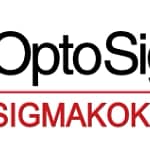MicroTools for Precise Work Under Microscope Observation.
MicroSupport
Published 15/05/2024
In recent years, the downsizing of precision products has led to a severe issue of defects caused by extremely fine foreign particles that can be introduced during manufacturing. Identifying and analyzing these minute foreign particles can help pinpoint their sources and pathways of contamination.
MicroSupport sampling tools are specially designed for handling μm-sized objects and are particularly optimized for use with micromanipulators. There is a variety of micro-tools to accommodate different micro-sampling methods depending on the morphology and condition of the target substrate. For example, the tungsten probe with needle-shaped structure (FIGURE 1) is quite versatile for a wide range of purposes, such as poking, rubbing, scraping, picking up, and probing substances. A wide variety of tip diameters from 0.2μm to 30μm are available to satisfy different sampling requirements.

FIGURE 1: Left tungsten probe. Right pickup and delivery of 5 μm samples with tungsten probe
For sampling and marking harder objects however, there is a risk of bending for the tungsten probe. For such cases, MicroSupport offers the tungsten carbide probes (FIGURE 2) as alternative solution. Various other structures are available as well, such as flathead screwdriver-shaped, knife-edge-shaped as well as fork-shaped tools. The knife-edge tools are effective for collecting foreign substances embedded in tablets and extracting foreign objects buried in non-ferrous metals, hard plastics, etc. It can also be used for ultra-fine marking. As for the flathead screwdriver-shape tools or micro-peelers, they offer a wide range of material compatibility, suitable for flat-surface cutting of polymer like high-barrier films, as well as removing small, embedded particles, eliminating micro-protrusions, pinpoint cutting of IC bonding wires, and cutting tiny wires.

FIGURE 2: Tungsten carbide probe shaped tool.

FIGURE 3 : Plane cutting of 10 μm cellulose fiber using tungsten carbide knife edge shaped tool.
For softer materials, there is a risk of damage when using metal probes. Flex probes are therefore offered by MicroSupport with the tip size of 5 μm (FIGURE4) that enable the collection of foreign objects from narrow slits or tiny holes while minimizing damage to surrounding substrates. As for lifting of very delicate thin films samples processed by FIB, glass probes (FIGURE 5) are more suitable. Additionally, glass micro-pipettes are also available. These are capillary-shaped tools for absorption of solids and liquids with internal diameter size ranging from 1 to 50 μm. Should the sample be high-viscosity liquids, or thick samples that need to be reduced to an analytically suitable thickness, MicroSupport offers micro-press glass tools with tip structures that are facilitate the pressing motion (FIGURE 6).

FIGURE 4 . Left – flex probe with 5 μm tip size; right – extracting a foreign substance through a slit of 50 μm.

FIGURE 5 : Left – Needle shaped glass tool; top right – liquid extraction with glass micro pipette ; bottom right – solid absorption with glass micro pipette

FIGURE 6: Micro-press tools with 2 structures available shown on the right, with corresponding application example to the left.
Versatile micro-knives (FIGURE 7) are available with different blade shapes that targets specific use cases. While single edged blades are useful for pinpoint cutting of polymer films, the double-edge type is effective for excavating buried foreign objects using its tip. Stainless steel blades are excellent for many applications, although MicroSupport can also offer ruby blades which are useful in other cases, such as inclined cutting of buried foreign objects, facilitating their exposure and continuous sectioning.

FIGURE 7: Micro knives. Top left – Single edged stainless s teel (SUS) blade micro knife ; top right – extraction of 20 μm foreign substance using SUS micro-knife ; bottom left – double-edged ruby knife ; bottom right – extraction a protruding micro target of 30 μm foreign substance using flat blade ruby knife.
MicroSupport’s wide selection of tools enable much precise work to be accomplished when used in conjunction with the micromanipulators. Please contact our sales team at sales@optosigma-sea.com for further assistance on your application requirements.
